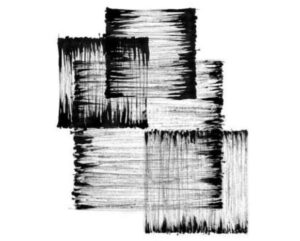TRANSLATED FROM HINDI BY RITUPARNA MUKHERJEE
I still have that box. Since many years. I have never opened it and see what’s inside. However, it is solely my decision whether or not to open it. No one, from the society at large, or even a friend, can compel me to open the lid of the box so that someone believes my words. I would never be able to achieve credibility in this lifetime if that were the case.
But if I want to convince people of the truth of my experience, I will have to open the lid to that box, without which I will never be able to achieve plausibility in this lifetime.
The dilemma that plagues me, however, is how do I know if the risk of opening this box is worthy enough of people’s trust? It might so happen after knowing the truth, although they find only this particular happenstance believable, while holding the rest of my experiences untenable.
In any case I will grow old trying to prove the variety of my realities. Eventually I die. Even then a lot of my experiences will still remain unproven. So, in all possibility, I will remain an object of disbelief for these people.
Of course, a problem still remains that I don’t possess a second box to substantiate my other experiences to people. How do I continue to verify the reality of my individual life experience among so many people?
This is the reason why I never open the lid to that box, neither when alone nor in the presence of other people. Because sometimes I even doubt myself. After so many years, even I have transformed as a person due to that one defining experience.
That box has been with me since my childhood. It has a very small story. It is not in bad taste either.
I must have been around eight years of age at that time. My milk teeth had started falling since I was seven years old. I was not old enough for wisdom teeth.
Our family home is in the village. It was initially a mud house with a tiled roof. The village houses still have tiled roofs. There was a forest adjacent to our village. There used to be quite a few langurs in the forest. I had learnt this specific term- langur- much later from books. We used to call them black-faced monkeys locally.
There were lots of crows there as well. My grandmother used to finish her lunch and call upon the crows with scraps of food in the courtyard. The crows used to fill the entire place.
The crows and langurs were enemies for the tiled roof of our home. The langurs would run around and break the tiles, while the crows would sometimes remove the tiles with their clawed feet.
The spaces with damaged tiles would let the rain in during the monsoons and we would put empty buckets underneath them.
On sunny days, the spaces between the tiles would let in spots of sunlight that would play in curious dots on the floor, patterns that were at once mysterious, attractive and somewhat alive. Those pieces of light would move with the sun, changing their shape as the day progressed. The spot of light that seemed like a fish in the morning would change to an elephant’s shape in the afternoon or had a gaping mouth like that of a demon. Sometimes a piece of light would disappear with the changing path of the sun, the rays of light would become smaller and smaller and subsequently dissipate only to reappear at the very same spot the next day. Sometimes the room would have many such shards of light. Gradually, the smaller ones would vanish, and the largest one would be there for the longest time.
There was another thing about these fragments of light. Wherever in the room they would fall in the darkness of the room, they would create a circular barrier of mellow light around its sparkling existence. The sky would be slightly reflected within that space. A lopsided sky with a slight blue tinge. If birds flew across sometimes, we would discern their shapes from their reflections inside the room. The crawling clouds would be seen, covering the spot of light sometimes. Nothing would remain in those moments, neither the reflection nor the particles of light.
These particles of light seemed very lively and magical to me. I always thought of ways by which I could take these slivers of light to some other place. I knew for sure that they had life and I didn’t want to behave merely as an audience with these life-like beings. I wanted to participate in their playfulness throughout the livelong day.
Despite my attempts, the light particles would stick to their position, never leaving. When I placed an object in their path, the light rays would shine on it but withdrew their touch as soon as I would remove the object from underneath them. I would try to capture them in the palm of my hand, but no sooner would I close my fingers than they would escape from my hold to the top of my fist.
Often, after repeated failures, I would beat and kick them in frustration, sometimes dig the floor with iron. But they would be unaffected. Their coldness towards me was unbearable.
One day I was alone in the kitchen. A large shard of light fell on the floor and played there. My mother had cooked lunch and gone somewhere. I tried to caress that shred of light, kissed it, fed it rice and dal.
A bamboo fan lay around in the kitchen. It was used to fan the fire in the kitchen hearth. I put the shard of light on the fan and pulled it.
I saw the morsel of light moving with the fan, coming toward me. It was the biggest success of my tiny life so far. It was free of the tiled roof now, even from the sun. It had now a relationship with me and it had forsaken its other bindings. It was mine, just mine.
I took it to the other side of the kitchen. And I urged it lovingly, “Wait for me. Ill be back in a jiffy.” And I ran. I returned with a small tin box, where Ma kept her kajal. It was waiting for me. On top of the fan. Trembling, ever so slightly.
I have kept the light shard enclosed in this tiny box ever since. I can take it with me anywhere. I know that is there, and would always be there. And it is the truth.
Should I open the lid of this box and risk losing my ray of light merely so that a few people believe the truth of this experience? I would never be able to secure their belief in me otherwise.
But will it be wise to gamble away something I have for something I don’t?
Also, read Why Ashu Cannot be a Detective, by Prabuddha Ghosh translated from Bengali by Rituparna Mukherjee and published in the Antonym.
Follow The Antonym’s Facebook page and Instagram account for more content and exciting updates.




























0 Comments